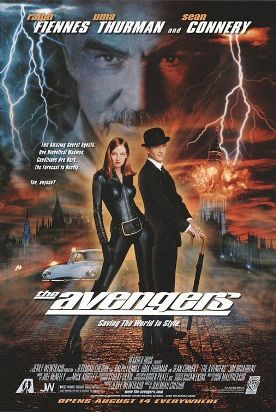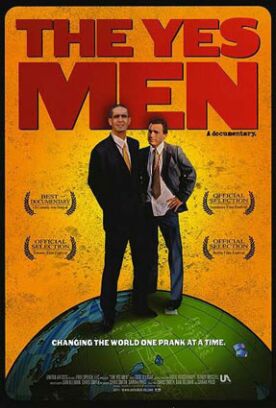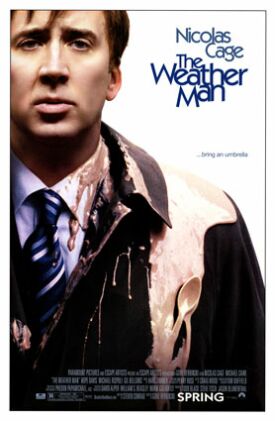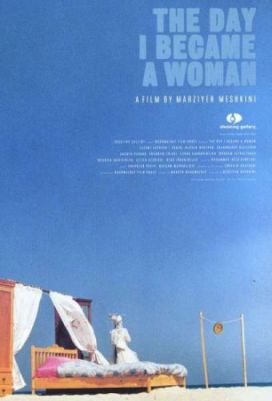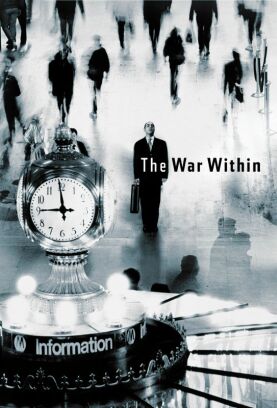Ringmaster
Jerry Springer in ‘Ringmaster,’ directed by Neil Abramson and written
by Jon Bernstein, stars Jerry Springer as the host of a daytime talk show very
much like “The Jerry Springer Show”—only a disclaimer at the end informs
us that this Jerry and that Jerry have nothing to do with one another. It is the
downmarket version of Woody Allen’s meditation on Celebrity, and like
that movie presents the lust for a few minutes’ exposure on national television
as the great paradigmatic ambition of our time. Those for whom knowledge or
power are forever out of reach strike a sort of poor man’s Faustian bargain in
which their miserable souls and sins are exchanged for an equally tawdry but
brief spell of twinkling like a star.
Actually, Ringmaster has a better shot than Celebrity at giving
us the thing itself, the naked desire for fame as it really exists in its purest
form among the trailer-trash whose story it tells. Connie (Molly Hagan)
virtually pushes her daughter, Angel (Jaime Pressley), into the arms of her,
Connie’s, new husband so that they can all go on Jerry’s show with the theme: “I
slept with my stepdaddy.” Just to make sure, Connie goes down to a nearby
trailer and performs oral sex on Angel’s “fiancé” so that all four of
them will be invited on the show. Meanwhile, there is a less fully-realized
quartet of black people going to the show at the same time, but they seem to be
there only so that both mother and daughter can try to seduce the young black
man, and then can be attacked on the air by his girlfriend.
As all this argy-bargy culminates in on-air confrontation, the film misses
its chance to examine the lust for fame more closely. The one character who
refuses to take part in the show is the least well-drawn, and simply walks away
three quarters of the way through the movie. Not too surprisingly, the film
indulges in a cheapness of its own. First it disingenuously pretends that it is
as surprised as everybody else that these people come on the show to spill their
guts about sleeping with their stepfathers or their daughters’ boyfriends. One
of Jerry’s assistants, Troy (William McNamara), wonders aloud: “Why would people
reveal their deepest, darkest secrets on TV for a free trip to LA?” Gee,
Troy, what a mystery that is, huh?
Of course he knows as well as everybody else does why they do it, but the
pretended ignorance is all part of the show’s pretense that it is simply giving
ordinary people the same shot at telling their stories that the rich and famous
have already. There is a little sermonette to this effect near the end of the
movie, when an impromptu debate is set up between Jerry and a religious nut of
some description who insists that all his guests are going to hell. Jerry leaps
to these pathetic people’s defense on the grounds that it is “elitism” not to
allow these people to tell “exactly the same” embarrassing secrets to the world
that rich people in their country clubs have. This, says indignant Jerry, is “a
slice of America,” and if the religious gentleman doesn’t like it, he can “bite
something else.”
Needless to say, the human wreckage who have tarted themselves up to come on
his show cheer him to the echo, but the rest of us might recoil just a bit at
such transparent demagoguery. Jerry the character in the movie, like Jerry
Springer in real life, is rich and famous himself because he has spent his life
exploiting the misery of the most stupid and spiritually stunted people in
America. For him to pretend to be their champion is as tasteless as anything
else about the show, and it takes away from the occasional approach he makes to
self-detachment—as when, after he attends to a disturbance in the hallway,
someone asks him if the people involved are all right.
“Of course they’re not all right,” he replies. “They’re guests on my
show.”
The trouble is: none of us is all right anymore.
Discover more from James Bowman
Subscribe to get the latest posts to your email.



